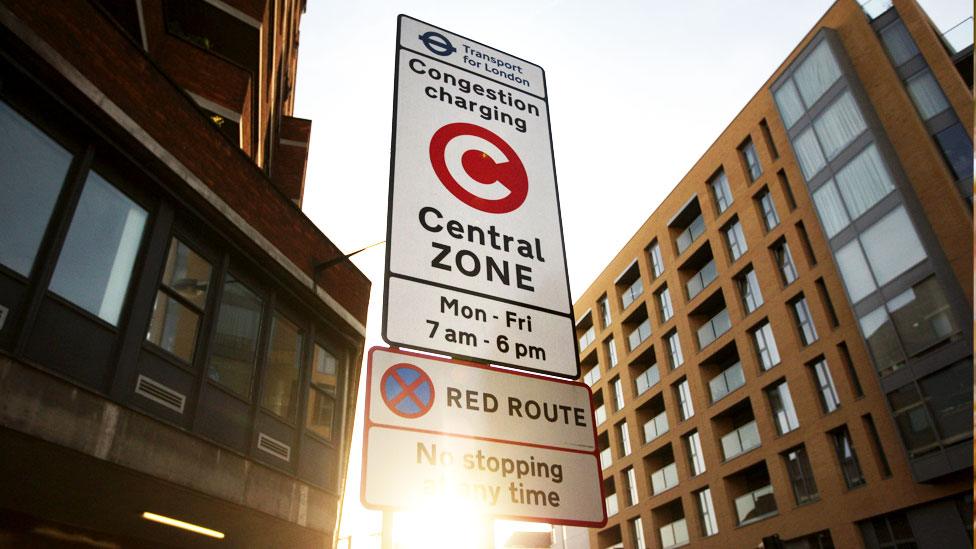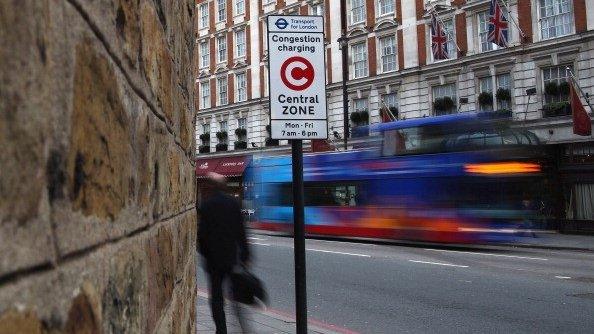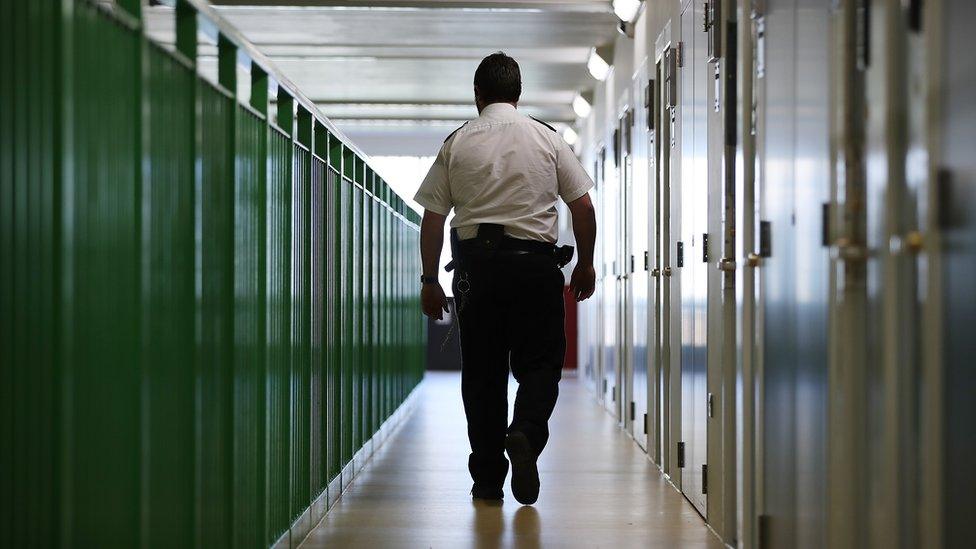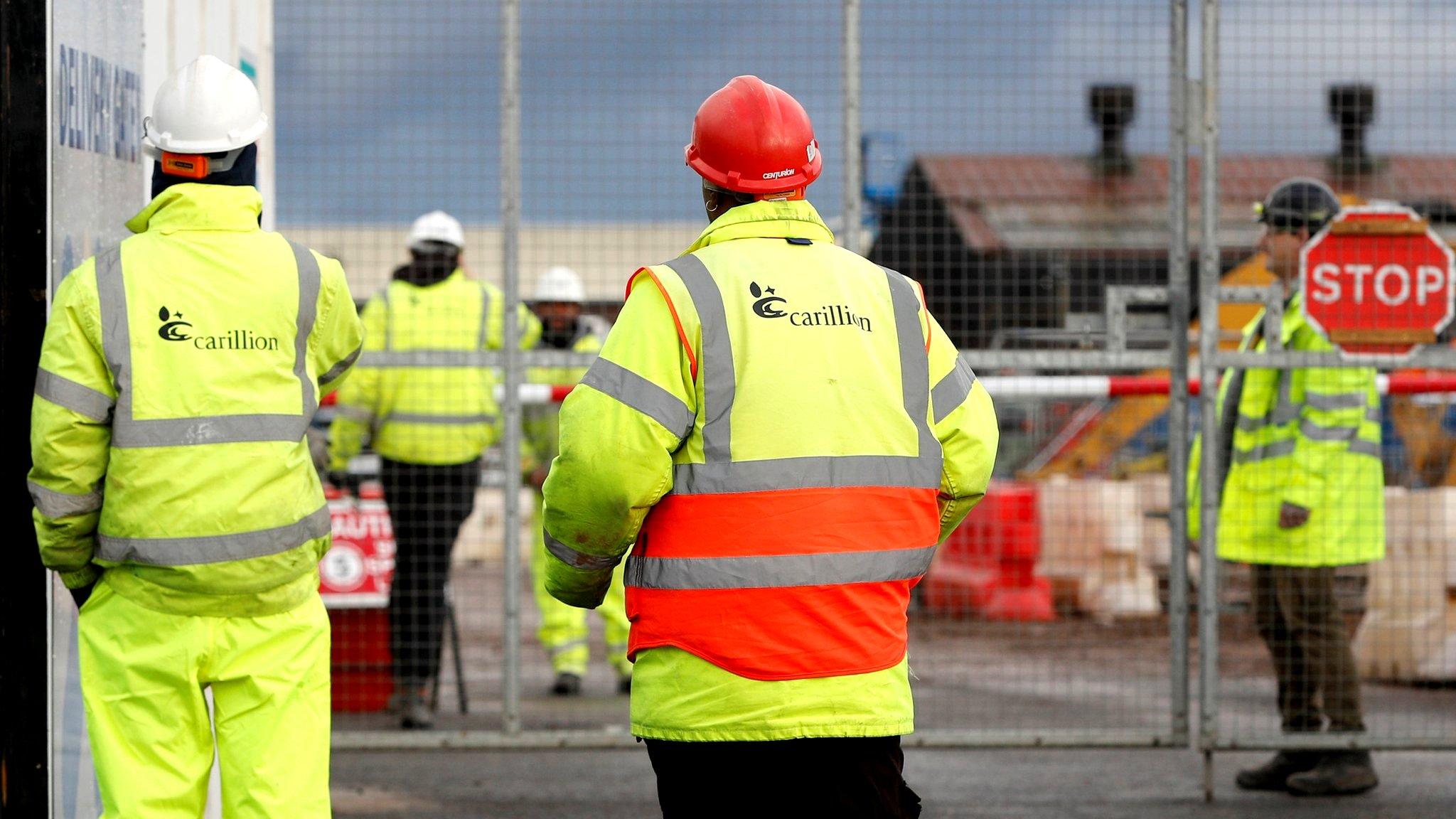Capita shares collapse after warning on profits
- Published
- comments

Capita shares have plunged almost 50% after the outsourcing firm warned on profits and announced a major shake-up.
New chief executive Jonathan Lewis said the company had become "too complex" and "driven by a short-term focus" and needed to change its approach.
Capita, which issued a series of profit warnings last year, has again cut its profit forecast and revealed plans to raise £700m by issuing new shares.
The move comes after outsourcing rival Carillion collapsed earlier this month.
Capita operates the London congestion charge, runs the government's Jobseekers Allowance helpline and administers the teachers' pension scheme. It also collects the TV licence fee on behalf of the BBC.
Shares ended the day 47% lower at 182.5p, prompting calls from Labour and trade unions for urgent government action to avoid "another Carillion".
A Cabinet Office spokeswoman said as a "strategic supplier" Capita was always monitored by the government.
The firm employs 70,000 people, about 50,000 of whom are in the UK.
According to Tussell, a firm which analyses UK public sector contracts, Capita won 154 government contracts last year.
'Strategic supplier'
Mr Lewis, who took over two months ago, said a review had found the company worked across too many markets and services, meaning it was difficult to "maintain a competitive advantage" in every business.
Capita had relied too much on acquisitions to drive growth and had also seen weakness in new contracts, he added.
The company does have some financial strengths. It can call on £1bn in cash and credit facilities, has a significantly higher profit margin than Carillion did and has been taking steps to reduce its debt burden.

Analysis by Today business presenter Dominic O'Connell

If Carillion had made an announcement like this a few years ago - raising money to pay off debt, admitting a slow-down in the market, owning up to both underinvestment and an over-reliance on buying other companies to find growth - then it might still be with us now.
Instead, Capita's new boss, Jonathan Lewis, has decided to take evasive action early.
Chief executives are normally afforded only one chance to hit the reset button in their time at the top, and the smart ones take it early, and hit the button hard.
That is what Mr Lewis has done.
By taking harsh financial medicine now he has probably ensured that the company does not suffer Carillion's fate.

Mr Lewis plans a wide-ranging overhaul including cost cutting, selling unprofitable businesses and cutting the dividend to shareholders.
Annual profits are now expected to be between £270m and £300m - well below analyst expectations of £400m.
In a conference call Mr Lewis said there was "much to be done", but Wednesday's announcements were the "first steps on the road to recovery".
Neil Wilson, senior analyst at ETX, said signs of problems had been building at the firm, including the loss of "a lucrative and profitable contract with the Prudential" in January.
Jon Trickett, Labour's shadow minister for the Cabinet Office, urged the government to "take serious steps" to oversee the activities of Capita, pointing out that it was the third major outsourcing company after Carillion and Interserve to issue a profit warning in the past month.
Capita is audited by KPMG, the same accountancy firm which audited Carillion.
Frank Field, chair of the Work and Pensions Committee, said Capita was "on the growing list of firms we are investigating to see if their conduct has endangered current and future pensioners' rights".
"Another day, another outsourcing firm with massive debt, a huge pension deficit, a KPMG audit and the Big Four popping up at every turn in the company's chequered history," he added.

What does Capita actually do?
Capita offers customer management services, including the operation of call centres, for public and private sector organisations.
Its customers include O2, M&S, John Lewis, local councils, the Army and the Department of Work and Pensions.
The firm's biggest contract is its management of O2's call centres. The 10-year deal was signed in 2013 and is worth £1.2bn.
It is also the UK's leading provider of software to emergency service control rooms and also runs the Ministry of Justice's electronic monitoring services for criminal offenders.

- Published2 March 2017

- Published17 January 2018

- Published15 January 2018
